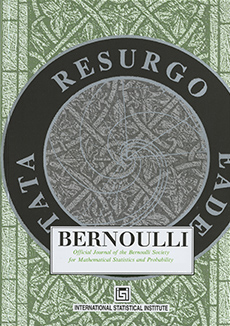Abstract
We study posterior contraction behaviors for parameters of interest in the context of Bayesian mixture modeling, where the number of mixing components is unknown while the model itself may or may not be correctly specified. Two representative types of prior specification will be considered: one requires explicitly a prior distribution on the number of mixture components, while the other places a nonparametric prior on the space of mixing distributions. The former is shown to yield an optimal rate of posterior contraction on the model parameters under minimal conditions, while the latter can be utilized to consistently recover the unknown number of mixture components, with the help of a fast probabilistic post-processing procedure. We then turn the study of these Bayesian procedures to the realistic settings of model misspecification. It will be shown that the modeling choice of kernel density functions plays perhaps the most impactful roles in determining the posterior contraction rates in the misspecified situations. Drawing on concrete posterior contraction rates established in this paper we wish to highlight some aspects about the interesting tradeoffs between model expressiveness and interpretability that a statistical modeler must negotiate in the rich world of mixture modeling.
Funding Statement
This research is supported in part by grants NSF CAREER DMS-1351362, NSF CNS-1409303, a research gift from Adobe Research and a Margaret and Herman Sokol Faculty Award.
Citation
Aritra Guha. Nhat Ho. XuanLong Nguyen. "On posterior contraction of parameters and interpretability in Bayesian mixture modeling." Bernoulli 27 (4) 2159 - 2188, November 2021. https://doi.org/10.3150/20-BEJ1275
Information





